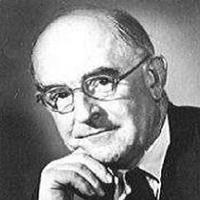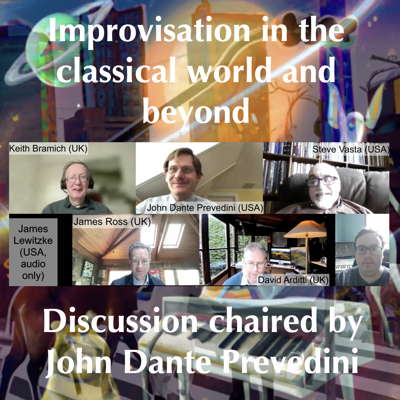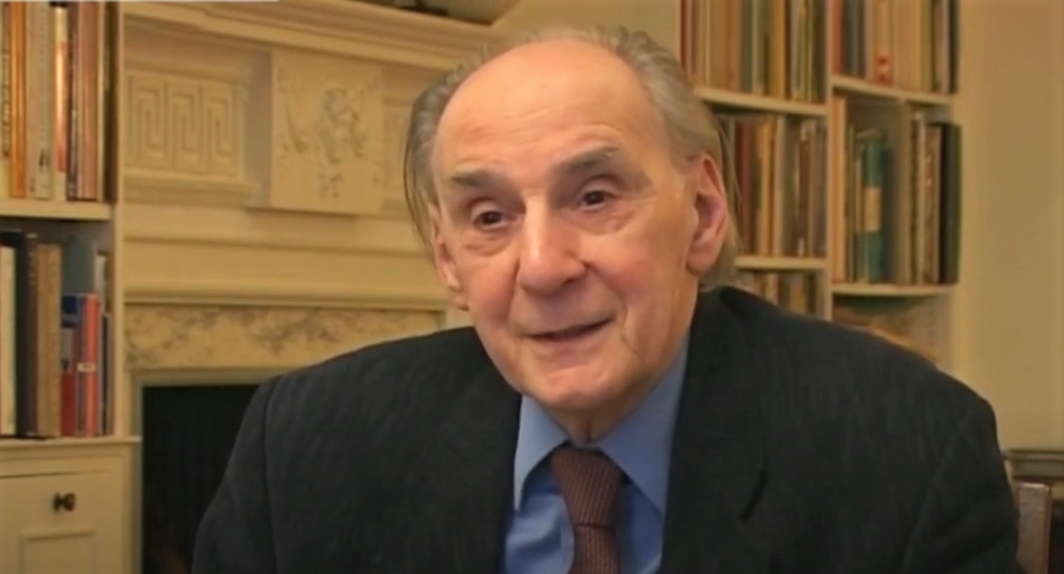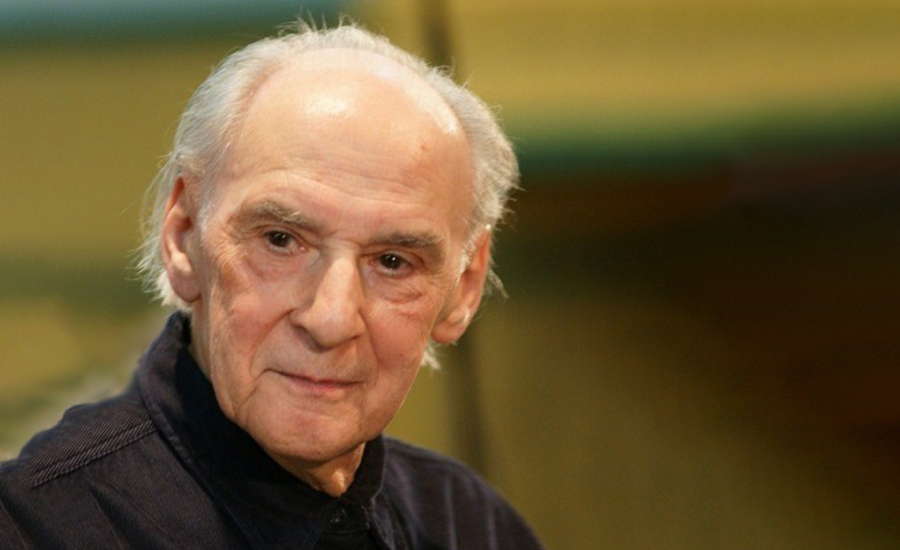- suicide
- Bernard van Dieren
- phenomenology
- Feldman
- Steinway and Sons
- L-ISA Hyperreal system
- Tom Collingwood
- Orchestre de la Suisse Romande
 SPONSORED: Ensemble. Unjustly Neglected - In this specially extended feature, Armstrong Gibbs' re-discovered 'Passion according to St Luke' impresses Roderic Dunnett.
SPONSORED: Ensemble. Unjustly Neglected - In this specially extended feature, Armstrong Gibbs' re-discovered 'Passion according to St Luke' impresses Roderic Dunnett.
All sponsored features >>
 DISCUSSION: John Dante Prevedini leads a discussion about Improvisation in the classical world and beyond, including contributions from David Arditti, James Lewitzke, James Ross and Steve Vasta.
DISCUSSION: John Dante Prevedini leads a discussion about Improvisation in the classical world and beyond, including contributions from David Arditti, James Lewitzke, James Ross and Steve Vasta.
In Memoriam – Joseph Horovitz (1926-2022)

MALCOLM MILLER writes about the British Vienna-born composer, conductor, pianist and teacher
Joseph Horovitz, the composer, conductor, pianist and teacher, famous for his popular cantata Captain Noah and his Floating Zoo, theme music for the TV series Rumpole of the Bailey and many skilful works for Brass Band, died peacefully on 9 February 2022, aged ninety-five. Horovitz, who was a Professor at the Royal College of Music for nearly sixty years, enriched the world of music during his long and fruitful life with an œuvre of immense artistic quality, versatility and with a distinctive voice inflected with a unique stylistic mixture of Viennese, European and English influences. A supreme master of harmony, counterpoint and orchestration, Horovitz's artful craftsmanship infused his many works in both light and serous genres with its sheer melodic inventiveness, assured understanding of instrumental and vocal idioms and a satisfying balance of zest and poetic expression.
Horovitz was born in Vienna in 1926, eldest of three children of the publisher Béla Horovitz, founder of the Phaidon Press, and his wife Lotte. Joseph's sister Elly would become a leading British art publisher, whilst Hannah became a noted concert agent and impresario. The family escaped from Vienna in 1938, days after the German annexation ('Anschluss') and settled in London, spending the war years in Bath and Oxford. Joseph studied music at New College Oxford, then at the RCM with Gordon Jacob, and Nadia Boulanger in Paris. Initial posts included conducting and composing for the Bristol Old Vic, the Ballets Russes and Festival Ballet in London, a period which saw the acclaimed ballets Les Femmes D'Alger and Alice in Wonderland, and with the Intimate Opera company. In the ensuing years Horovitz gradually won popularity through his distinctive synthesis of light and serious, of jazz and classical styles, first essayed in his Clarinet Concerto of 1957, the Music Hall Suite of 1964, and the Jazz Concerto (1965), premiered by George Malcolm in 1966, and which featured in the recent 2021 BBC Proms season, played by the Manchester Collective and Mahan Esfahani, to celebrate Horovitz's ninety-fifth birthday season. Amongst the many other concerts for that occasion was a special event at his alma mater, New College, Oxford, which in 2019 had bestowed an Honorary Fellowship.

Joseph Horovitz (1926-2022). Photo © 2022 Association of Jewish Refugees
Horovitz's considerable œuvre comprises twelve ballets, two chamber operas and one recent full opera Ninotchka, based on the 1939 MGM movie, concertos for various instruments - Euphonium, violin, trumpet and bassoon, a string of thrilling brass and wind band works, and chamber music involving wind instruments such as the Oboe Quartet and the evergreen Clarinet Sonatina (1981), one of several works composed for Gervase de Peyer, which currently has over thirty available recordings in the catalogue. Whilst the 'ecological cantata' Summer Sunday (1975) was prophetic for its time, his best known cantata is the award winning Captain Noah and his Floating Zoo (1970), written to a text by Michael Flanders and first performed by the Kings Singers in 1971, which won the 1975 Ivor Novello Award for the best work for children. It was set as a GCSE work, adapted to a TV cartoon, and, for its fiftieth anniversary in 2018, Horovitz re-orchestrated for a large scale BBC performance conducted by John Wilson.
Particularly significant is Horovitz's contribution to the repertoire of brass and wind band music, including test pieces commissioned by the National Brass Band Championships of Great Britain. There is a distinctive originality to works such as the early Sinfonietta (1968), the virtuoso Ballet for Band (1983) or the programmatic Ad Astra, a 1990 RAF commission for the Fiftieth Anniversary of the Battle of Britain, which, in its concluding bars, depicts a fighter pilot during World War II, spiraling upwards to the stars. Horovitz also produced music for radio and outdoor events, as well some seventy film and TV scores, including Tarzan's Three Challenges, and acclaimed series like Rumpole of the Bailey, which portrays the loveable barrister with a theme for the memorable combination of four bassoons, Search for the Nile, and Lillie, which won the 1979 Ivor Novello Award for best TV theme music.
Amongst his more serious concert works are several choral and vocal settings, such as the compelling Lady Macbeth Scena, the psalm Sing unto the Lord a New Song (1971), commissioned by St Paul's Cathedral, and the 1977 oratorio Samson, for voices and brass band. Perhaps his most powerful and personal work is the Fifth String Quartet, premiered in 1969 by the Amadeus Quartet on the occasion of the sixtieth birthday of the fellow émigré Viennese art historian Sir Ernst Gombrich. Acclaimed as one of the finest of twentieth century quartets, it is an autobiographical reflection on the composer's Viennese refugee experience, with allusions to a Viennese popular song and a Nazi march woven into the fabric of a richly textured single movement.
The Viennese influence is never far from Horovitz's music, indeed the noted critic William Mann once described Horovitz as 'the legitimate heir of Schubert and Johann Strauss II born into the age of Jazz'. Horovitz himself always underlined that he was a British composer, yet infused with the Classical and Jewish European cultural background he and his family brought to Britain from Vienna. It was therefore poignant that Horovitz received accolades from the country he was forced to flee, including the Gold Order of Merit of the City of Vienna in 1996, and in 2007 the Austrian Cross of Honour for Science and Arts First Class, as well as honorary membership of the Austrian Composers' Society.
At the same time Horovitz's outlook was truly international. He worked on behalf of his fellow musicians as President of the International Council of Composers and Lyricists (1981–89), as PRS board member (1969-96). His awards include the 2002 Nino Rota Prize in Italy for 'an outstanding international musical career', as well as the 2008 Cobbett prize for services to chamber music.
As a much loved teacher at London's Royal College of Music since 1961, Horovitz inspired young musicians, many of whom forged notable careers, such as John Wilson, the eminent conductor and arranger, for whom Horovitz was still working on arranging parts for a performance of his Violin Concerto, until shortly before he died. He maintained his passion for life and music to the very last.

Joseph Horovitz (1926-2022). Photo © Wolfgang Jud
A warm and loving family man, Horovitz was married for over sixty-five years to Anna. During their honeymoon in Mallorca in 1956, they visited Paguera and Valdemosa, titles of two movements in Two Mallorcan Pieces for clarinet, based on Spanish melodies they heard there. He is survived by Anna, their two daughters, grand and great-grandchildren. Joseph Horovitz will be sorely missed by all who knew him. His memory lives on in the minds and hearts of generations of students, performers and audiences and in his rich musical legacy for our own time and for the future.
Copyright © 21 February 2022
Malcolm Miller,
London UK

OTHER FEBRUARY 2022 OBITUARIES
CLASSICAL MUSIC ARTICLES ABOUT THE UNITED KINGDOM
ARTICLES MENTIONING VIENNA, ITS MUSIC OR MUSICIANS
ARTICLES ABOUT JEWISH MUSIC AND MUSICIANS
FURTHER INTERVIEWS, PROFILES AND TRIBUTES


